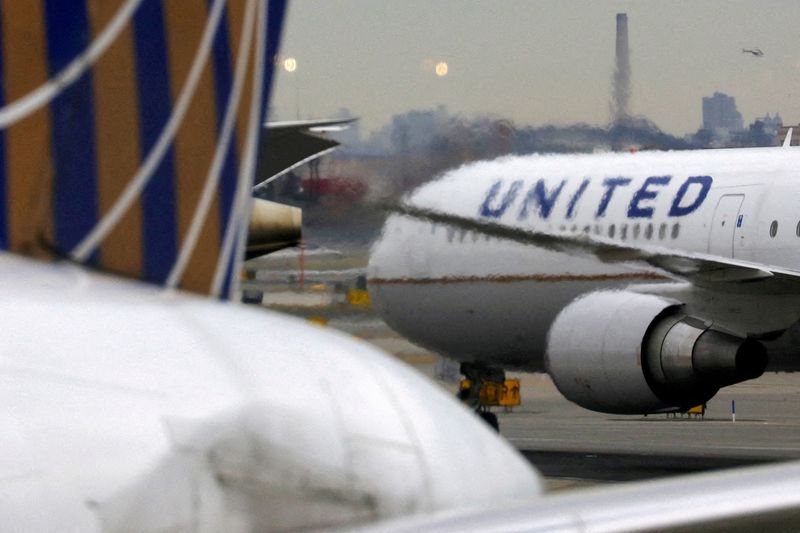By David Shepardson and Rajesh Kumar Singh
WASHINGTON/CHICAGO (Reuters) - United Airlines said late Friday that U.S. safety regulators will boost scrutiny of the airline after a series of recent safety incidents.
United's corporate safety vice president, Sasha Johnson, said in a memo that over the next several weeks employees will see more of a presence by the Federal Aviation Administration "in our operation as they begin to review some of our work processes, manuals and facilities."
The Chicago-based airline has experienced several emergencies in the past two weeks. On March 15 , an external panel was found to be missing from a United aircraft when it landed in Oregon, prompting an FAA investigation.
Before that incident, a United Airlines-operated Boeing (NYSE:BA) 737 MAX rolled onto the grass in Houston. A United-operated Boeing 777-200 bound for Japan also lost a tire after takeoff from San Francisco and was diverted to Los Angeles, where it landed safely.
The incidents "have rightfully caused us to pause and evaluate whether there is anything we can and should do differently," Johnson's memo said adding "We welcome their engagement and are very open to hear from them about what they find and their perspective on things we may need to change to make us even safer."
On Tuesday, FAA Administrator Mike Whitaker told Reuters the agency was going to look at United more closely, saying United CEO Scott Kirby (NYSE:KEX) "knows we're going to be engaging a little more closely with them as we look into these."
Asked for comment on United's memo, the FAA said on Friday it "routinely monitors all aspects of an airline’s operation" including "compliance with applicable regulations; ability to identify hazards, assess and mitigate risk; and effectively manage safety."
Scrutiny on planemaker Boeing has also mounted since a Jan. 5 Alaska Airlines mid-air emergency, with inquiries into safety and quality standards in its production process.

Asked about additional attention many aviation incidents are drawing, Whitaker said some events getting coverage are not necessarily unusual but the FAA investigates to ensure there is no broader safety trend.
Whitaker said it is important "to try to separate the signal from the noise.... The system works well because it has a lot of redundancy built into it, a lot of resilience."